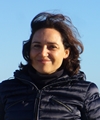Studying at the University of Verona
Here you can find information on the organisational aspects of the Programme, lecture timetables, learning activities and useful contact details for your time at the University, from enrolment to graduation.
Academic calendar
The academic calendar shows the deadlines and scheduled events that are relevant to students, teaching and technical-administrative staff of the University. Public holidays and University closures are also indicated. The academic year normally begins on 1 October each year and ends on 30 September of the following year.
Course calendar
The Academic Calendar sets out the degree programme lecture and exam timetables, as well as the relevant university closure dates..
| Period | From | To |
|---|---|---|
| Sem. 1A | Sep 26, 2022 | Nov 5, 2022 |
| Sem. 1B | Nov 14, 2022 | Dec 23, 2022 |
| Sem. 2A | Feb 13, 2023 | Mar 30, 2023 |
| Sem. 2B | Apr 11, 2023 | May 27, 2023 |
| Session | From | To |
|---|---|---|
| Sessione Invernale | Jan 9, 2023 | Feb 11, 2023 |
| Sessione Estiva | Jun 5, 2023 | Jul 22, 2023 |
| Sessione Autunnale | Aug 28, 2023 | Nov 23, 2023 |
| Sessione straordinaria invernale | Jan 8, 2024 | Feb 17, 2024 |
| Session | From | To |
|---|---|---|
| Sessione Estiva | Jul 10, 2023 | Jul 15, 2023 |
| Sessione Autunnale | Nov 6, 2023 | Nov 11, 2023 |
| Sessione invernale | Apr 2, 2024 | Apr 8, 2024 |
| Period | From | To |
|---|---|---|
| Festa di Ognissanti | Nov 1, 2022 | Nov 1, 2022 |
| Festività Della Immacolata Concezione | Dec 8, 2022 | Dec 8, 2022 |
| Vacanze natalizie | Dec 24, 2022 | Jan 8, 2023 |
| Vacanze di Pasqua | Apr 7, 2023 | Apr 10, 2023 |
| Festa della liberazione | Apr 25, 2023 | Apr 25, 2023 |
| Festa del lavoro | May 1, 2023 | May 1, 2023 |
| Festa del Santo Patrono | May 21, 2023 | May 21, 2023 |
| Festa della Repubblica | Jun 2, 2023 | Jun 2, 2023 |
| Chiusura estiva | Aug 14, 2023 | Aug 19, 2023 |
Exam calendar
Exam dates and rounds are managed by the relevant Humanistic Studies Teaching and Student Services Unit.
To view all the exam sessions available, please use the Exam dashboard on ESSE3.
If you forgot your login details or have problems logging in, please contact the relevant IT HelpDesk, or check the login details recovery web page.
Should you have any doubts or questions, please check the Enrollment FAQs
Academic staff
 stefania.pontrandolfo@univr.it
stefania.pontrandolfo@univr.it
 marco.ubbiali@univr.it
marco.ubbiali@univr.it
Study Plan
The Study Plan includes all modules, teaching and learning activities that each student will need to undertake during their time at the University.
Please select your Study Plan based on your enrollment year.
1° Year
| Modules | Credits | TAF | SSD |
|---|
2° Year activated in the A.Y. 2023/2024
| Modules | Credits | TAF | SSD |
|---|
Indirect internship for coordination of educational services
| Modules | Credits | TAF | SSD |
|---|
| Modules | Credits | TAF | SSD |
|---|
Indirect internship for coordination of educational services
| Modules | Credits | TAF | SSD |
|---|
Legend | Type of training activity (TTA)
TAF (Type of Educational Activity) All courses and activities are classified into different types of educational activities, indicated by a letter.
Philosophy and Socratic Dialogue (2023/2024)
Teaching code
4S008178
Teacher
Coordinator
Credits
6
Language
Italian
Scientific Disciplinary Sector (SSD)
M-FIL/07 - HISTORY OF ANCIENT PHILOSOPHY
Period
Sem. 2A dal Feb 19, 2024 al Mar 29, 2024.
Courses Single
Authorized
Learning objectives
Knowledge and understanding 1. To know and understand the structural relation between the character of Socrates and the practice of maieutic dialogue. 2. To know and understand the pedagogical relevance of the classical "paideia", in particular the how it is described and practiced by Socrates in the Platonic dialogues and in the Socratic literature. 3. Knowing and understanding several fundamental elements of the Socratic dialogue: the search for meaning, irony, refutation, paradox, the exhortation to self-care and to the value of life within the "polis". Applying knowledge and understanding 1. Understanding the theoretical meaning of the Socratic dialogue in the contemporary ways of communication, focusing on issues of both continuity and discontinuity ad to the problems involved. 2. Rethinking and reformulating the educational dialogue, as a commonly understood today, in the light of the Socratic practice of dialogue, as presented in the Platonic dialogues and in the Socratic literature. 3. Rethinking the professional profile and lifestyle of the educator and pedagogist by looking at the way Socrates thinks and acts in the Platonic dialogues and the Socratic literature.
Prerequisites and basic notions
Surely a previous knowledge of the history of the ancient and mediaeval philosophy allows to work easier within this scientific field: however it is not compulsory. The same can be said as to the ancient Greek and Latin languages. More important is a careful lexical research and an interest in a critical reading of philosophical texts.
Program
Title and content of the course: "Dialogue and Socratic Paideia".
The course tackles the educational strategies implied in the Socratic dialogue (questioning, examination, refutation, care of the self, irony, maieutics, logic, and dialectics) in the first-generation Socratics (especially in Plato and Xenophon, but also in Aeschines and Phaedo). We will investigate the lines of continuity and discontinuity between the dialogue practiced by Socrates and the Greek notion of Paideia, with particular reference not only to the life of Athens in the 5th and 4th centuries BCE, but also to the reception and application of the Socratic dialogue in contemporary educational practices such as the Philosophy for Children, the Cooperative Learning and the Problem-Based Learning.
The course will provide a shared reading of dialogical units drawn from Socratic literature: students will be involved in discussing the positions held by the characters in the text and, where possible, in applying the educational tenets of the Socratic dialogue to concrete situations.
TEXTS TO BE READ FOR THE ORAL EXAM:
A) A. Stavru, A colloquio con Socrate. La cura di sé nel dialogo socratico, Marinotti, Milano 2023 (in full).
B) L. Napolitano, Il dialogo socratico, Milano, Mimesis 2018 (the student will pick one modern author among those in the first part of the book).
C) Course reserve:
1. W. Jaeger, chapter on 'Socrates' included in Id., Paideia, vol. III (Bompiani, Milano 2003).
2. L. Mortari, ‘Dialogare per imparare a pensare’, in: Ead., A scuola di libertà. Formazione e pensiero autonomo, Cortina, Milano 2008, pp. 37-70.
3. J. Ambury, Dialectical Epimeleia, in: “Plato Journal”, 17, 2018, pp. 85-99.
(Text 1 is compulsory; pick a text among 2. and 3.).
The course reserve is available both on the Moodle page and at the copy shop Replay Verona, Via S. Francesco 18/A. The course reserve as well at the recordings of the lesson are compulsory.
NON-ATTENDING STUDENTS:
Non-attending students will bring the same texts as attending students, except for the volume by L. Napolitano "Il dialogo socratico," which will be read in full.
Bibliography
Didactic methods
The teaching is carried out in frontal mode. Recordings are available on Moodle at the end of each lesson. NB: listening to the recordings does not replace reading the scheduled texts. With regard to the methods for requesting support from students in solitary confinement, the coronavirus Info Student web page has been updated. By clicking on the item "Lessons, exams and degree exams - request form for date change/supplementary teaching material", students can download the form to self-certify their positivity and request the supplementary material from the teacher. Students in particularly fragile situations, unable to attend lessons due to particularly disabling disabilities or learning disabilities, are invited to contact the "Inclusion and Accessibility Service", which will assess the actual impossibility of attendance on a case-by-case basis and will agree on the methods of support with the teachers concerned.
Learning assessment procedures
Teaching method: The course will be held in accordance with the University provisions on COVID-19. Frontal lessons and seminars are foreseen with direct reading of texts and subsequent common discussion; therefore attendance is useful and therefore desirable, although obviously not compulsory. Reception: Throughout the academic year, the teacher receives either at his studio, or via e-mail or via Zoom or Skype, at the times indicated on the web pages or at times agreed with the teacher (especially in the case of online meetings) .
Evaluation criteria
Ability to organize and articulate the acquired knowledge; critical reasoning on the topics of the course; quality, depth and coherence of the exposition, competence in the use of terminology and expressions rerlated to ancient philosophy.
Criteria for the composition of the final grade
The evaluation is expressed in a grade out of thirty.
Exam language
Italiano (prevalentemente ma non esclusivamente)
Type D and Type F activities
I 9 crediti liberi a scelta dello studente (ambito “D”) hanno lo scopo di offrire allo studente la possibilità di personalizzare il proprio percorso formativo permettendo di approfondire uno o più argomenti di particolare interesse legati al proprio percorso accademico.
Per garantire questo fine, si invitano gli studenti a rispettare le seguenti indicazioni per il completamento di tale ambito:
- almeno un’attività formativa erogata come esame universitario (con relativo voto in trentesimi);
- massimo 6 cfu relativi a competenze linguistiche (oltre a quelli previsti dal PdS);
- massimo 6 cfu relativi a competenze informatiche (oltre a quelli previsti dal PdS);
- massimo 4 cfu di tirocinio, (oltre a quelli previsti dal PdS);
- massimo 6 cfu di attività laboratoriale/esercitazioni (compresi quelli previsti nei PdS per l’ambito) di regola viene riconosciuto 1 cfu ogni 25 ore di attività;
- massimo 6 cfu di attività seminariale/convegni/cicli di incontri/formative in genere (sia accreditata dal Dipartimento di Scienze Umane che extrauniversitaria) – di regola viene riconosciuto 1 cfu ogni 8 ore di partecipazione e/o 2 giornate salvo diversamente deliberato;
- non vengono valutate attività svolte in Erasmus non inserite nei Learning Agreement.
Altre informazioni sono reperibili nella Guida per i crediti liberi che è possibile trovare quì.
COMPETENZE TRASVERSALI
Scopri i percorsi formativi promossi dal Teaching and learning centre dell'Ateneo, destinati agli studenti iscritti ai corsi di laurea, volti alla promozione delle competenze trasversali:
https://talc.univr.it/it/competenze-trasversali
| years | Modules | TAF | Teacher |
|---|---|---|---|
| 1° 2° | Il teatro dell'oppresso | D |
Paola Dusi
(Coordinator)
|
| 1° 2° | Le 16 attitudini per una vita felice | D |
Paola Dusi
(Coordinator)
|
| 1° 2° | Movement medicine | D |
Paola Dusi
(Coordinator)
|
| 1° 2° | Summer school: human sciences and society - (HSAS) – 2022/2023 | D |
Federica De Cordova
(Coordinator)
|
| years | Modules | TAF | Teacher |
|---|---|---|---|
| 1° 2° | Laboratory of behavioral observation techniques | D |
Marinella Majorano
(Coordinator)
|
| years | Modules | TAF | Teacher |
|---|---|---|---|
| 1° 2° | Body and Disability – Laboratory | D |
Michele Scandola
(Coordinator)
|
| 1° 2° | Laboratorio di painting dialogue | D |
Paola Dusi
(Coordinator)
|
| 1° 2° | Group Psychology and evaluation of educational intervention | D |
Anna Maria Meneghini
(Coordinator)
|
| 1° 2° | Le 16 attitudini per una vita felice (ed. 2023) | D |
Paola Dusi
(Coordinator)
|
| 1° 2° | OMeGA - Horizons, Models and Assisted Parenting | D |
Alessandra Cordiano
(Coordinator)
|
| 1° 2° | Tai-Ti aiuto io | D |
Alessandra Cordiano
(Coordinator)
|
| 1° 2° | Se le api sono poche-pedagogia del movimento (ed. 2023) | D |
Rosanna Cima
(Coordinator)
|
| years | Modules | TAF | Teacher |
|---|---|---|---|
| 1° 2° | Il teatro dell'oppresso (ed. 2023) | D |
Paola Dusi
(Coordinator)
|
| 1° 2° | Movement medicine (ed. 2023) | D |
Paola Dusi
(Coordinator)
|
| 1° 2° | OMeGA - Horizons, Models and Assisted Parenting | D |
Alessandra Cordiano
(Coordinator)
|
| 1° 2° | Tai-Ti aiuto io | D |
Alessandra Cordiano
(Coordinator)
|
Career prospects
Module/Programme news
News for students
There you will find information, resources and services useful during your time at the University (Student’s exam record, your study plan on ESSE3, Distance Learning courses, university email account, office forms, administrative procedures, etc.). You can log into MyUnivr with your GIA login details: only in this way will you be able to receive notification of all the notices from your teachers and your secretariat via email and soon also via the Univr app.
Student mentoring
Graduation
Documents
| Title | Info File |
|---|---|
|
|
pdf, it, 99 KB, 13/10/23 |
|
|
pdf, it, 101 KB, 10/04/24 |
List of theses and work experience proposals
| theses proposals | Research area |
|---|---|
| Psicoanalisi | Psychology - Psychology, Psychoanalysis |
Gestione carriere
Linguistic training CLA
Practical information for students
Documents
| Title | Info File |
|---|---|
|
|
pdf, it, 325 KB, 02/05/23 |
|
|
pdf, it, 212 KB, 02/05/23 |
|
|
pdf, it, 131 KB, 02/05/23 |
Stage e Tirocini
Per le altre attività formative (crediti F) sono previsti 9 cfu (pari a 225 ore) da acquisire solamente attraverso l’attività di tirocinio obbligatoria, a sua volta suddivisa in:
- tirocinio indiretto (1 cfu: 25 ore di frequenza obbligatoria in università per il 75%) in preparazione dell’attività formativa sul campo;
- tirocinio diretto (8 cfu), da svolgersi presso enti convenzionati.
L’ordinamento didattico della LM in Scienze pedagogiche prevede che il tirocinio indiretto a frequenza obbligatoria si svolga in università per il 75% nel secondo anno (1 CFU: 25 ore).
Il tirocinio indiretto consiste in un accompagnamento iniziale delle/degli studenti da parte dei tutor attraverso un percorso di formazione della durata di 25 ore.
La finalità di questo percorso è quella di preparare le/gli studenti alla particolare forma di apprendimento costituita dal tirocinio, dotandoli di conoscenze e strumenti adeguati a osservare, comprendere e rielaborare criticamente l’esperienza di tirocinio nei servizi educativi e ad affrontare il tirocinio negli enti con metodo e consapevolezza.
Il percorso, da attuare in gruppi da 20-25 persone sotto la supervisione di un tutor proveniente dal mondo professionale di educatori e pedagogisti, risponde alle esigenze costantemente espresse sia dalle/dagli studenti stessi sia dalle parti sociali che dai referenti degli enti convenzionati.
Nuove Linee Guida per il tirocinio di Scienze pedagogiche.
- Tutte le informazioni in merito agli stage per futuri studenti sono disponibili alla pagina Stage e tirocini.
- Tutte le informazioni in merito agli stage per studenti iscritti sono pubblicate in MyUnivr - come fare per - stage e tirocini.
- Tutte le informazioni in merito agli stage per le aziende sono disponili alla pagina Stage e tirocini per azienze.

 045 802-8183
045 802-8183

















